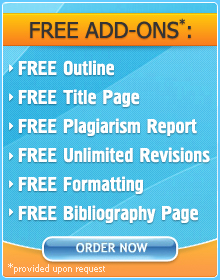Classmate post
Donna Zuiderweg posted Sep 24, 2018 6:30 PM
1. In Chapter two your authors present content around the What happened? conversation. What did you learn there about ascertaining who is right/wrong, about the And Stance , and about intentions? What shift in focus do the authors ask you to make regarding difficult conversations?
In this chapter I learned that often in the case of a disagreement, both sides of the story do make sense and are technically ‘right’ but usually the subtext underneath the disagreement is what’s driving each person’s actions and communications. Unless we really try to listen and understand the underlying story, we will be doomed to continue the disagreement. Further, just telling someone that they are wrong or that they should do something or to change their mind, will never really work – it actually makes them more unlikely to do what you’re telling them to do. In fact, the authors emphasis that each person sees the world differently, based on his/her experiences, the information accumulated over time and what he/she notices and we all interpret those things in a singular way that often reflects our own self-interest. The authors believe that in the midst of difficult conversations we have to shift from certainty about how right we are, to curiosity to understand why the other person is feeling, acting, saying the things they are.
2. A good deal of emotion surrounds difficult conversations whether they be in our personal or professional lives. What did you read in Chapter 5 that was new to you or that rings true to you given your experiences? What is emotional intelligence and how does it fit in here?
What really rang true to me in this chapter was the notion that feelings are difficult to ignore and that often, the answer to an argument is obvious and rational but the emotions and feelings involved in the situation make it hard to embrace a rational outcome. Recently, I had a work situation where a team member had sent communications to a client that were not professional because he felt that the client was demeaning and patronizing to him. When we talked about the situation, my team member could not get over the emotion and had a very hard time recognizing that the way he had construed the interactions with the client were not the only way they could have been understood. He refused to consider that he might have over reacted, even though many of the facts suggested he had done so. When trying to deal with the situation, we had extensive discussion about how he felt and why he felt that way. In the end, we agreed that though he had every right to his opinion about his interactions with the client, ultimately, he had let his own feelings cause him to behave in an unprofessional and reckless manner. There were plenty of other ways he could have dealt with the situation that were in keeping with a professional work environment. Emotional intelligence is the ability to recognize your own feelings and emotions and understand how they affect your own actions and behaviors. In this case, the team member did not express high emotional intelligence.
3. Chapter 6 is all about identity. How does this concept of identity fit into difficult conversations in our professional and personal lives? Offer examples from your own experiences.
Identity is an important concept that often rears up in the midst of difficult conversations because hard conversations get to the heart of what we think we know about ourselves. Our experiences and perspectives shape how we act and what we believe. Those things can be shaken when we are faced with a new perspective or a realty that doesn’t jive with our own experiences. Like most people, I have a very black and white perspective about what I think I’m good at – particularly in a work situation. I consider myself a strong communicator, not only in writing but in presentations and public speaking. However, this is most true when I’ve had some time to prepare and know my subject well. Every once in a while, I’m thrown into a situation where I’m out of my element and after one such situation recently, my boss pulled me aside to say that I needed to work on my presentation skills because I said ‘umm’ too much during the presentation and seemed unprepared. It was very upsetting to me since I have worked throughout the years on my presentation skills and felt that this was a rare instance when I was not at my best. I was unreasonably emotional about the criticism because for me my ability was black or white – either I am a good public speaker, or I am not. My boss made me doubt myself and it took me awhile to acknowledge that I am largely a good public speaker but that I do not excel at extemporaneous public speaking; I need to work on that aspect but also, do a better job of guarding myself against those situations if I can. The next time my boss saw me speak he complimented me on what a great job I did and commended me for taking his coaching to heart. (I also had two days to prepare for the presentation!)
4. How does reading Difficult Conversations inform your negotiations?
Reading Difficult Conversations suggests to me that when negotiating in the future I need pay as much attention to the subtext of the conversation and the situation almost more than what is actually being said. What emotions is the other person demonstrating that is skewing their ability to think rationally? What feelings AM I feeling that might be causing me to perceive something that isn’t really there? How is the conversation affecting my identity and sense of self –am I hearing more criticism than is actually intended? Possibly the hardest thing in the midst of a disagreement or negotiation is to try to understand the other person’s story and whether or not their argument has validity for which you are not giving them credit. In chapter 7, the authors emphasis that you can’t change the other people but that we can change ourselves and the way we react to others.
Reference
Stone, D., Patton, B., & Heen, S. (2010). Difficult conversations: How to discuss what matters most (2nded.). New York, NY: Penguin Group (USA), Inc.
[meteor_slideshow slideshow="slide3"]Are you looking for a similar paper or any other quality academic essay? Then look no further. Our research paper writing service is what you require. Our team of experienced writers is on standby to deliver to you an original paper as per your specified instructions with zero plagiarism guaranteed. This is the perfect way you can prepare your own unique academic paper and score the grades you deserve.
[meteor_slideshow slideshow="slide2"]Use the order calculator below and get ordering with idealtermpapers.com now! Contact our live support team for any assistance or inquiry.
[order_calculator]






 info@idealtermpapers.com
info@idealtermpapers.com






